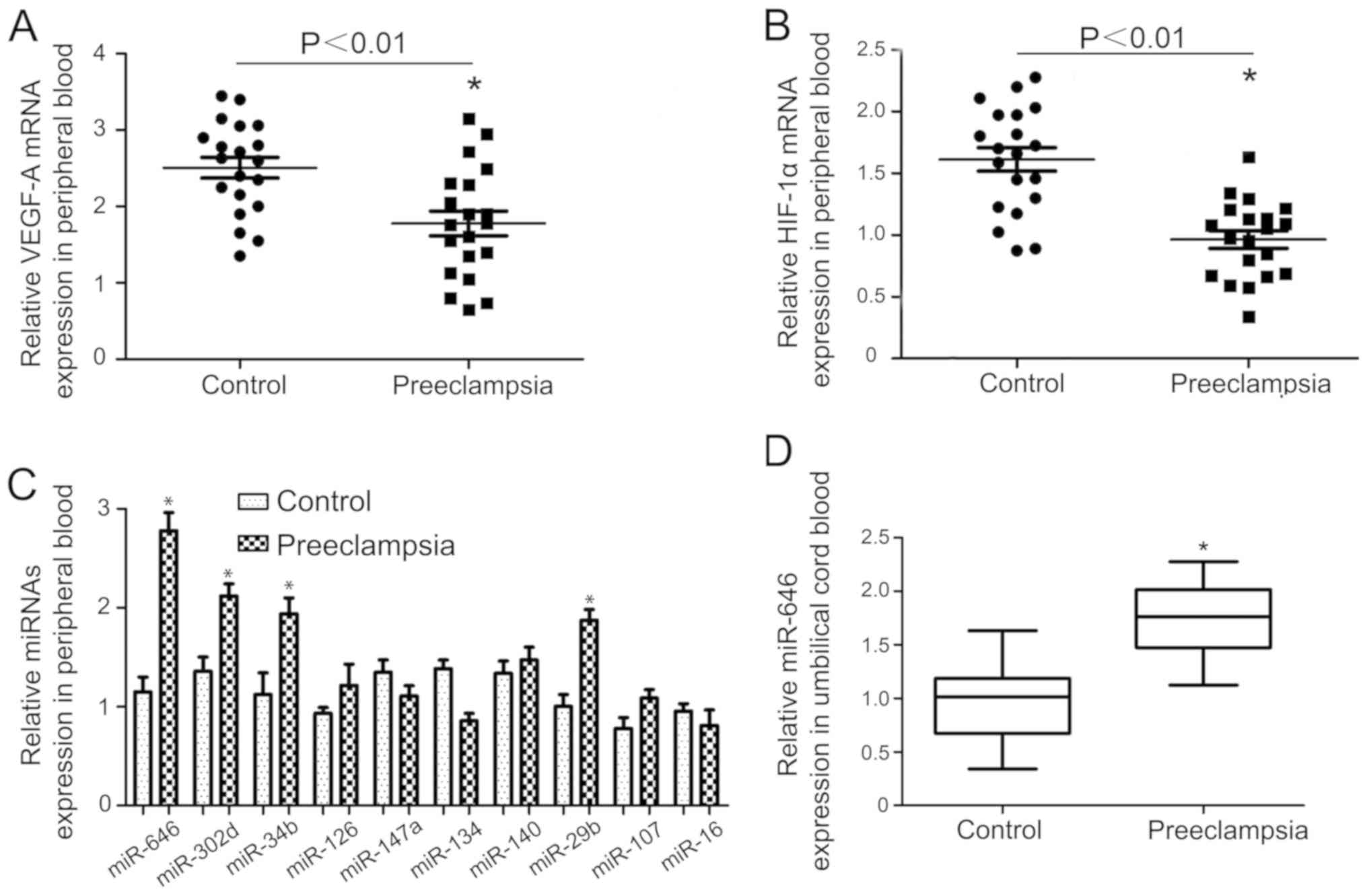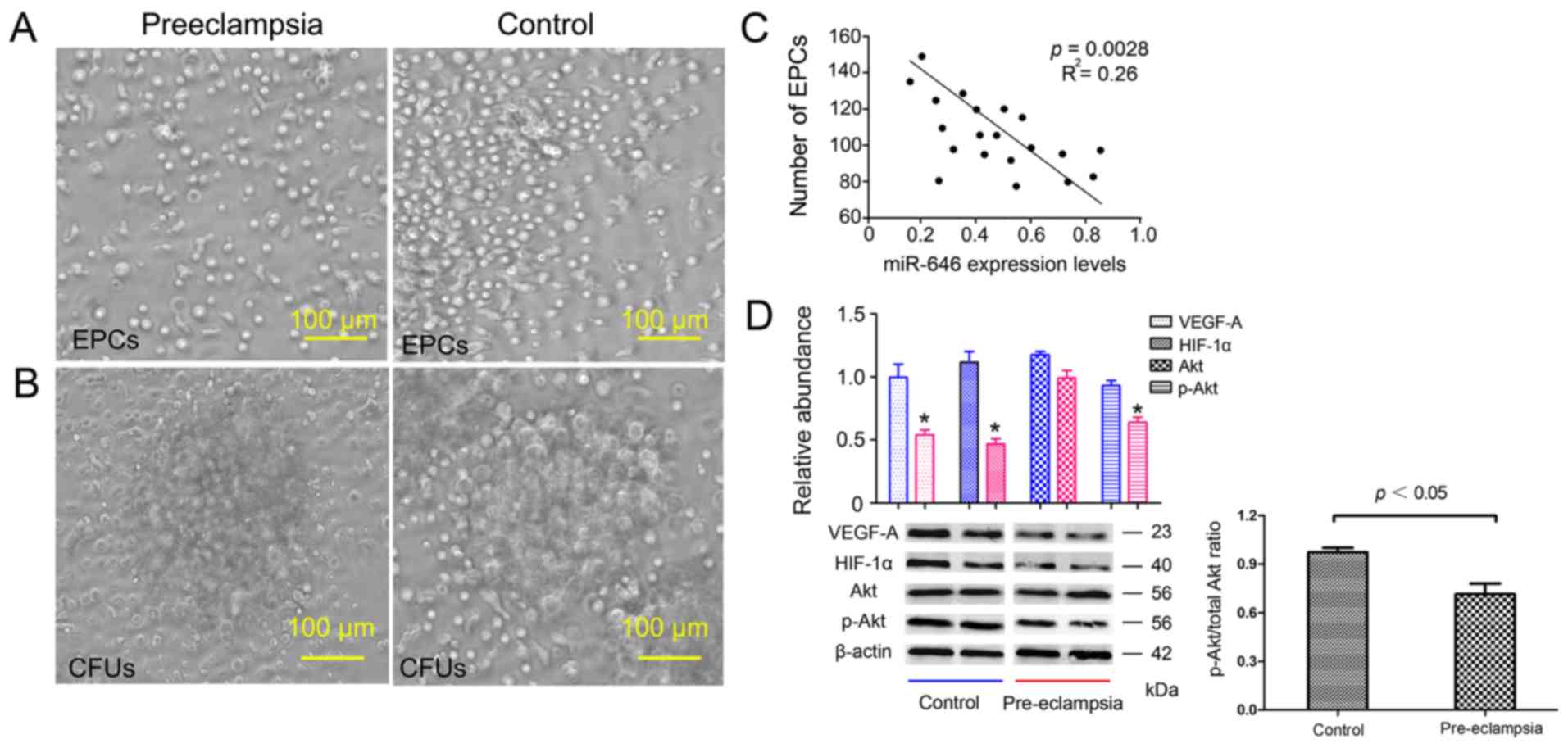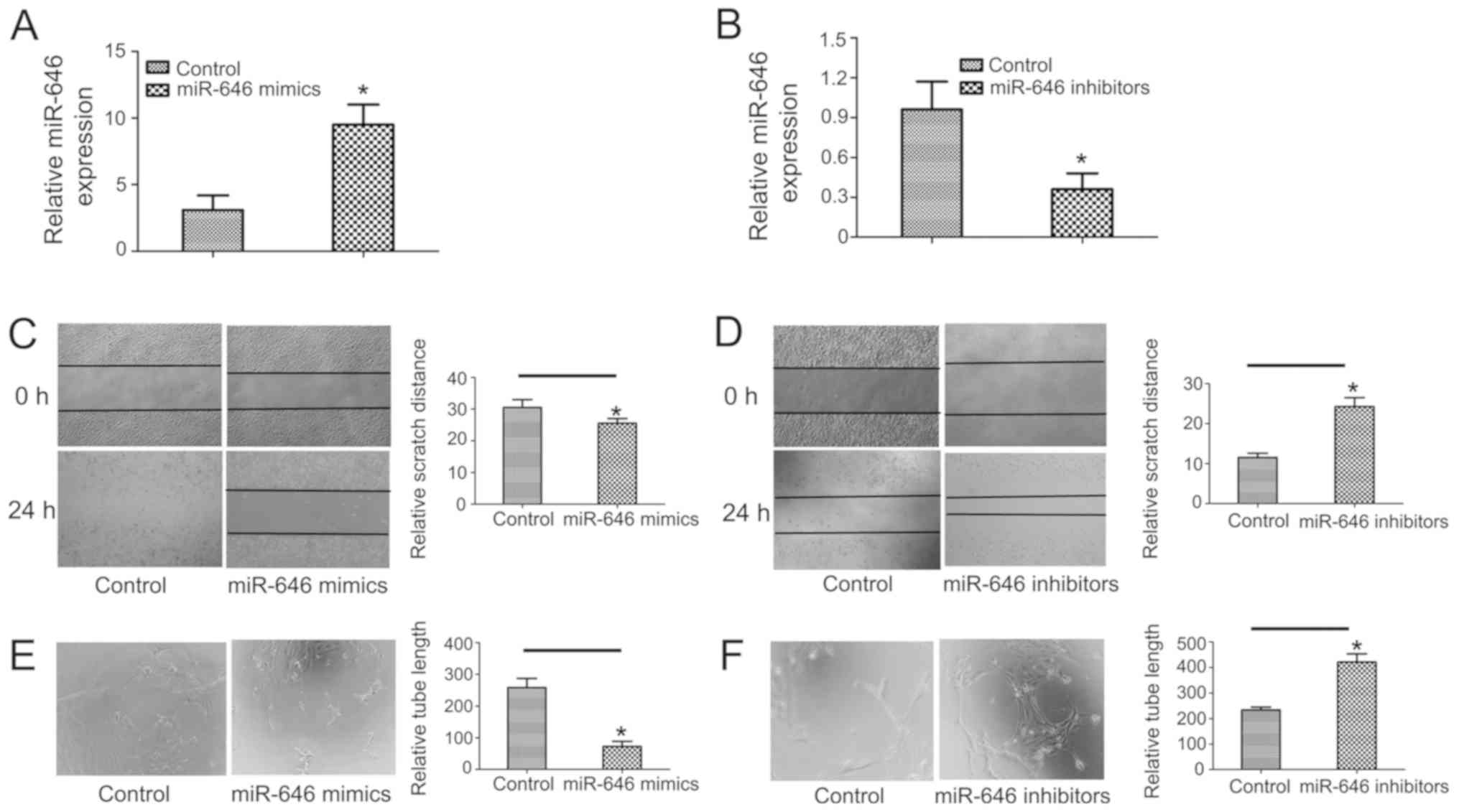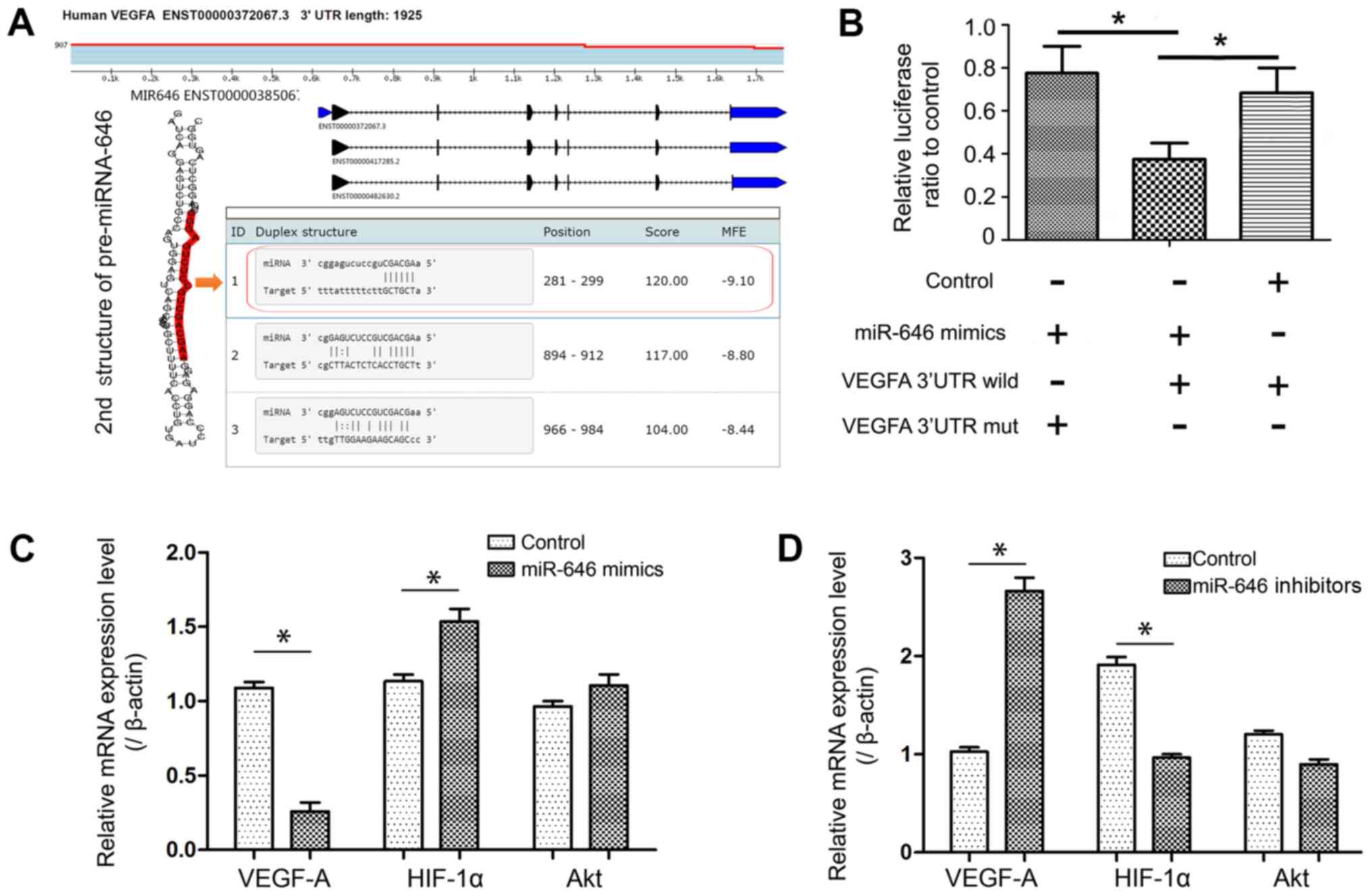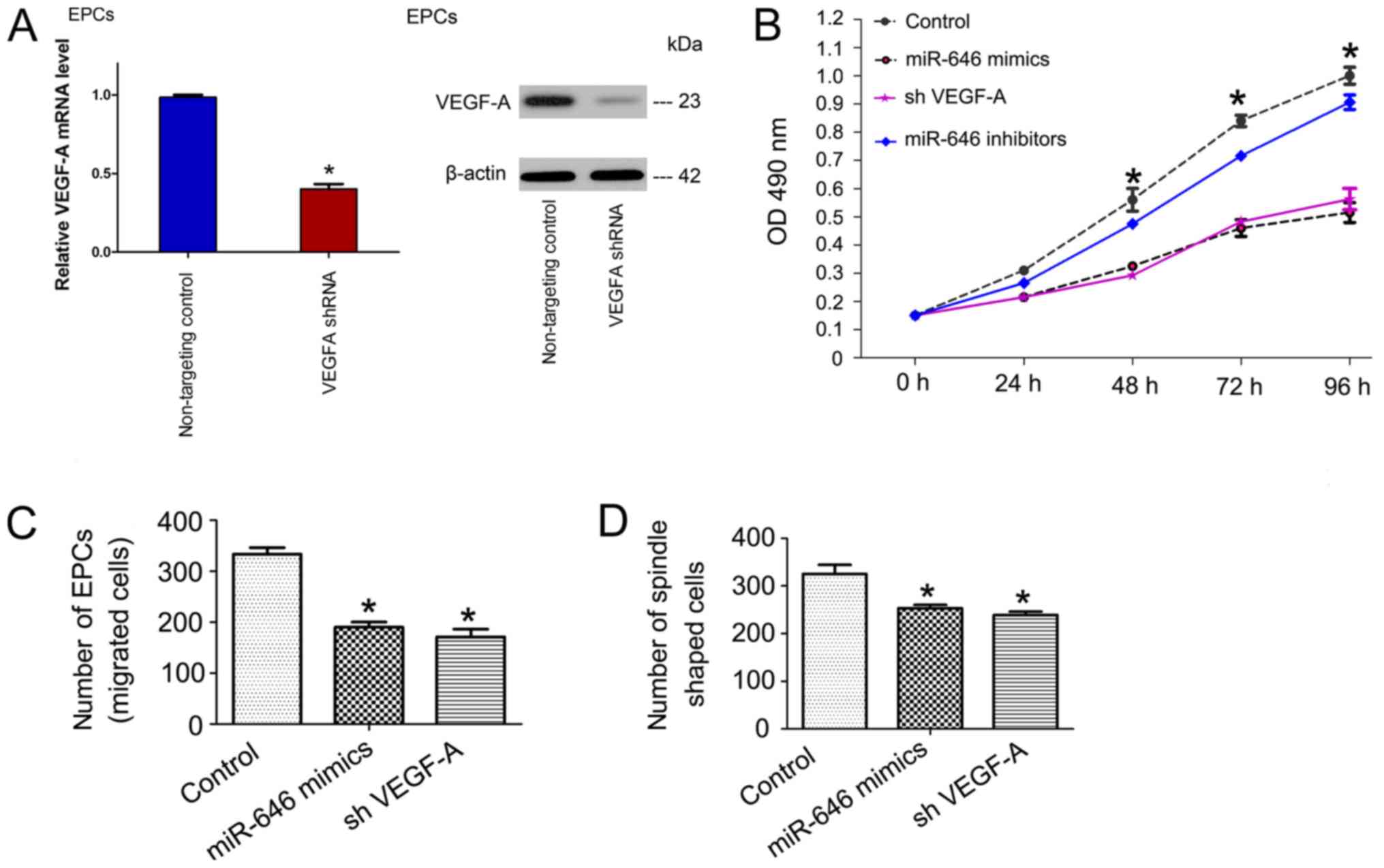|
1
|
Al-Jameil N, Aziz Khan F, Fareed Khan M
and Tabassum H: A brief overview of preeclampsia. J Clin Med Res.
6:1–7. 2014.PubMed/NCBI View Article : Google Scholar
|
|
2
|
Kalafat E and Thilaganathan B:
Cardiovascular origins of preeclampsia. Curr Opin Obstet Gynecol.
29:383–389. 2017.PubMed/NCBI View Article : Google Scholar
|
|
3
|
Anders HJ, Romagnani P and Mantovani A:
Pathomechanisms: Homeostatic chemokines in health, tissue
regeneration, and progressive diseases. Trends Mol Med. 20:154–165.
2014.PubMed/NCBI View Article : Google Scholar
|
|
4
|
Sipos PI, Rens W, Schlecht H, Fan X,
Wareing M, Hayward C, Hubel CA, Bourque S, Baker PN, Davidge ST, et
al: Uterine vasculature remodeling in human pregnancy involves
functional macrochimerism by endothelial colony forming cells of
fetal origin. Stem Cells. 31:1363–1370. 2013.PubMed/NCBI View Article : Google Scholar
|
|
5
|
Yoder MC: Endothelial progenitor cell: A
blood cell by many other names may serve similar functions. J Mol
Med (Berl). 91:285–295. 2013.PubMed/NCBI View Article : Google Scholar
|
|
6
|
Silvestre JS, Smadja DM and Lévy BI:
Postischemic revascularization: From cellular and molecular
mechanisms to clinical applications. Physiol Rev. 93:1743–1802.
2013.PubMed/NCBI View Article : Google Scholar
|
|
7
|
Cheng CC, Chang SJ, Chueh YN, Huang TS,
Huang PH, Cheng SM, Tsai TN, Chen JW and Wang HW: Distinct
angiogenesis roles and surface markers of early and late
endothelial progenitor cells revealed by functional group analyses.
BMC Genomics. 14(182)2013.PubMed/NCBI View Article : Google Scholar
|
|
8
|
Urbich C and Dimmeler S: Endothelial
progenitor cells: Characterization and role in vascular biology.
Circ Res. 95:343–353. 2004.PubMed/NCBI View Article : Google Scholar
|
|
9
|
Kikuchi K and Poss KD: Cardiac
regenerative capacity and mechanisms. Annu Rev Cell Dev Biol.
28:719–741. 2012.PubMed/NCBI View Article : Google Scholar
|
|
10
|
Gammill HS, Lin C and Hubel CA:
Endothelial progenitor cells and preeclampsia. Front Biosci.
12:2383–2394. 2007.PubMed/NCBI View
Article : Google Scholar
|
|
11
|
Attar A, Monabati A and Parsanezhad ME:
Endothelial progenitor cell subsets and preeclampsia: Findings and
controversies. J Chin Med Assoc. 80:615–622. 2017.PubMed/NCBI View Article : Google Scholar
|
|
12
|
Crocker IP and Sipos PI: Review:
Endothelial progenitor cells in pregnancy and obstetric
pathologies. Placenta. 34 (Suppl):S62–S67. 2013.PubMed/NCBI View Article : Google Scholar
|
|
13
|
Simmons DG: Postimplantation development
of the chorioallantoic placenta. In: The Guide to Investigation of
Mouse Pregnancy. Croy A, DeMayo FJ, Yamada AT and Adamson SL (eds).
Academic Press, Massachusetts, pp143-161, 2014.
|
|
14
|
Min W, Wang B, Li J, Han J, Zhao Y, Su W,
Dai Z, Wang X and Ma Q: The expression and significance of five
types of miRNAs in breast cancer. Med Sci Monit Basic Res.
20(97)2014.PubMed/NCBI View Article : Google Scholar
|
|
15
|
Ha M and Kim VN: Regulation of microRNA
biogenesis. Nat Rev Mol Cell Biol. 15:509–524. 2014.PubMed/NCBI View
Article : Google Scholar
|
|
16
|
Finnerty JR, Wang WX, Hébert SS, Wilfred
BR, Mao G and Nelson PT: The miR-15/107 group of microRNA genes:
Evolutionary biology, cellular functions, and roles in human
diseases. J Mol Biol. 402:491–509. 2010.PubMed/NCBI View Article : Google Scholar
|
|
17
|
Li W, Liu M, Feng Y, Xu YF, Huang YF, Che
JP, Wang GC, Yao XD and Zheng JH: Downregulated miR-646 in clear
cell renal carcinoma correlated with tumour metastasis by targeting
the nin one binding protein (NOB1). Br J Cancer. 111:1188–1200.
2014.PubMed/NCBI View Article : Google Scholar
|
|
18
|
Choudhury M and Friedman JE: Epigenetics
and microRNAs in preeclampsia. Clin Exp Hypertens. 34:334–341.
2012.PubMed/NCBI View Article : Google Scholar
|
|
19
|
Chaiworapongsa T, Chaemsaithong P, Yeo L
and Romero R: Pre-eclampsia part 1: Current understanding of its
pathophysiology. Nat Rev Nephrol. 10:466–480. 2014.PubMed/NCBI View Article : Google Scholar
|
|
20
|
Livak KJ and Schmittgen TD: Analysis of
relative gene expression data using real-time quantitative PCR and
the 2(-Delta Delta C(T)) method. Methods. 25:402–408.
2001.PubMed/NCBI View Article : Google Scholar
|
|
21
|
Schildberger A, Rossmanith E, Eichhorn T,
Strassl K and Weber V: Monocytes, peripheral blood mononuclear
cells, and THP-1 cells exhibit different cytokine expression
patterns following stimulation with lipopolysaccharide. Mediators
Inflamm. 2013(697972)2013.PubMed/NCBI View Article : Google Scholar
|
|
22
|
Raines AL, Berger MB, Patel N, Hyzy SL,
Boyan BD and Schwartz Z: VEGF-A regulates angiogenesis during
osseointegration of Ti implants via paracrine/autocrine regulation
of osteoblast response to hierarchical microstructure of the
surface. J Biomed Mater Res A. 107:423–433. 2019.
|
|
23
|
Ma Y, Xiu Z, Zhou Z, Huang B, Liu J, Wu X,
Li S and Tang X: Cytochalasin H inhibits angiogenesis via the
suppression of HIF-1α protein accumulation and VEGF expression
through PI3K/AKT/P70S6K and ERK1/2 signaling pathways in non-small
cell lung cancer cells. J Cancer. 10:1997–2005. 2019.PubMed/NCBI View Article : Google Scholar
|
|
24
|
Kobayashi H, Imanaka S, Nakamura H and
Tsuji A: Understanding the role of epigenomic, genomic and genetic
alterations in the development of endometriosis (review). Mol Med
Rep. 9:1483–1505. 2014.PubMed/NCBI View Article : Google Scholar
|
|
25
|
Li H, Ge Q, Guo L and Lu Z: Maternal
plasma miRNAs expression in preeclamptic pregnancies. Biomed Res
Int. 2013(970265)2013.PubMed/NCBI View Article : Google Scholar
|
|
26
|
Zhu Y, Lu H, Huo Z, Ma Z, Dang J, Dang W,
Pan L, Chen J and Zhong H: MicroRNA-16 inhibits feto-maternal
angiogenesis and causes recurrent spontaneous abortion by targeting
vascular endothelial growth factor. Sci Rep.
6(35536)2016.PubMed/NCBI View Article : Google Scholar
|
|
27
|
Zhang P, Tang WM, Zhang H, Li YQ, Peng Y,
Wang J, Liu GN, Huang XT, Zhao JJ, Li G, et al: MiR-646 inhibited
cell proliferation and EMT-induced metastasis by targeting FOXK1 in
gastric cancer. Br J Cancer. 117:525–534. 2017.PubMed/NCBI View Article : Google Scholar
|
|
28
|
Cao Z (ed): VEGF-mediated Vascular
Functions in Health and Disease. Linköping University Electronic
Press, LiU-Tryck, Linköping, 2015.
|
|
29
|
Miranda E, Nordgren IK, Male AL, Lawrence
CE, Hoakwie F, Cuda F, Court W, Fox KR, Townsend PA, Packham GK, et
al: A cyclic peptide inhibitor of HIF-1 heterodimerization that
inhibits hypoxia signaling in cancer cells. J Am Chem Soc.
135:10418–10425. 2013.PubMed/NCBI View Article : Google Scholar
|
|
30
|
Wang Z, Dabrosin C, Yin X, Fuster MM,
Arreola A, Rathmell WK, Generali D, Nagaraju GP, El-Rayes B,
Ribatti D, et al: Broad targeting of angiogenesis for cancer
prevention and therapy. Semin Cancer Biol. 35 (Suppl):S224–S243.
2015.PubMed/NCBI View Article : Google Scholar
|
|
31
|
Nassiri SM and Rahbarghazi R: Interactions
of mesenchymal stem cells with endothelial cells. Stem Cells Dev.
23:319–332. 2014.PubMed/NCBI View Article : Google Scholar
|
|
32
|
Masoud GN and Li W: HIF-1α pathway: Role,
regulation and intervention for cancer therapy. Acta Pharm Sin B.
5:378–389. 2015.PubMed/NCBI View Article : Google Scholar
|
|
33
|
Semenza GL: HIF-1 mediates metabolic
responses to intratumoral hypoxia and oncogenic mutations. J Clin
Invest. 123:3664–3671. 2013.PubMed/NCBI View
Article : Google Scholar
|
|
34
|
Gilkes DM, Bajpai S, Chaturvedi P, Wirtz D
and Semenza GL: Hypoxia-inducible factor 1 (HIF-1) promotes
extracellular matrix remodeling under hypoxic conditions by
inducing P4HA1, P4HA2, and PLOD2 expression in fibroblasts. J Biol
Chem. 288:10819–10829. 2013.PubMed/NCBI View Article : Google Scholar
|
|
35
|
Fisher SJ: Why is placentation abnormal in
preeclampsia? Am J Obstet Gynecol. 213 (4 Suppl):S115–S122.
2015.PubMed/NCBI View Article : Google Scholar
|
|
36
|
Bidarimath M, Khalaj K, Wessels JM and
Tayade C: MicroRNAs, immune cells and pregnancy. Cell Mol Immunol.
11:538–547. 2014.PubMed/NCBI View Article : Google Scholar
|
|
37
|
Tannetta D and Sargent I: Placental
disease and the maternal syndrome of preeclampsia: Missing links?
Curr Hypertens Rep. 15:590–599. 2013.PubMed/NCBI View Article : Google Scholar
|
|
38
|
Fan X, Rai A, Kambham N, Sung JF, Singh N,
Petitt M, Dhal S, Agrawal R, Sutton RE, Druzin ML, et al:
Endometrial VEGF induces placental sFLT1 and leads to pregnancy
complications. J Clin Invest. 124:4941–4952. 2014.PubMed/NCBI View Article : Google Scholar
|
|
39
|
Whitehead CL, Walker SP and Tong S:
Measuring circulating placental RNAs to non-invasively assess the
placental transcriptome and to predict pregnancy complications.
Prenat Diagn. 36:997–1008. 2016.PubMed/NCBI View Article : Google Scholar
|
|
40
|
Laskowska M, Laskowska K and Oleszczuk J:
Elevated maternal serum sP-selectin levels in preeclamptic
pregnancies with and without intrauterine fetal growth restriction,
but not in normotensive pregnancies complicated by isolated IUGR.
Med Sci Monit. 19:118–124. 2013.PubMed/NCBI View Article : Google Scholar
|















